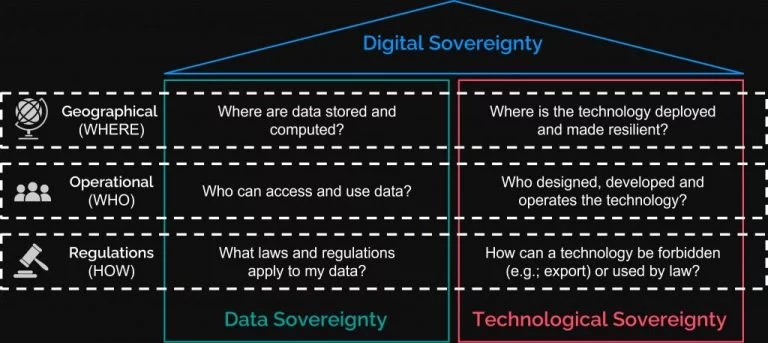
Navigating Data Sovereignty Regulations: Global Compliance Challenges
In an era where data drives innovation and business operations, the concept of data sovereignty has emerged as a critical aspect of global regulatory frameworks. As countries enact stringent data sovereignty regulations, organizations face complex challenges in ensuring compliance while harnessing the power of data. This article delves into the intricate landscape of data sovereignty and the challenges it poses to businesses worldwide.
Understanding Data Sovereignty
Data sovereignty refers to the concept that data is subject to the laws of the country in which it is located. As organizations increasingly operate on a global scale, the issue of where data is stored and processed becomes paramount. Governments around the world are enacting regulations to assert control over data within their borders, leading to a complex web of compliance requirements.
The Proliferation of Data Sovereignty Regulations
In recent years, there has been a significant proliferation of data sovereignty regulations globally. Countries, recognizing the importance of securing sensitive information, are implementing laws that dictate how data related to their citizens should be handled. This includes regulations on data storage, processing, and cross-border data transfers.
Challenges for Multinational Organizations
For multinational organizations, navigating the diverse landscape of data sovereignty regulations presents a formidable challenge. Operating in different jurisdictions means contending with varying and sometimes conflicting requirements. Ensuring compliance becomes a complex task, requiring a nuanced understanding of each country’s regulations and a tailored approach to data management.
Data Sovereignty and Cloud Services
The rise of cloud services has added another layer of complexity to data sovereignty considerations. Many organizations leverage cloud providers for data storage and processing, often involving data centers located in different countries. This poses challenges in aligning cloud usage with the intricate web of regulations governing data sovereignty.
AstroidIT: Navigating Data Sovereignty Regulations
Stay informed about the latest developments in data sovereignty regulations by visiting AstroidIT. AstroidIT offers insights into global compliance challenges and resources to help organizations navigate the complexities of data sovereignty.
Impact on Cross-Border Data Transfers
One of the critical aspects of data sovereignty regulations is their impact on cross-border data transfers. Many countries require explicit consent or impose restrictions on transferring data outside their borders. This directly affects businesses that operate globally and necessitates careful consideration of data transfer mechanisms to comply with diverse regulatory frameworks.
Ensuring Data Security and Privacy
Data sovereignty regulations often converge with broader data security and privacy concerns. Organizations must implement robust security measures to protect sensitive information in accordance with local laws. Privacy regulations, such as the GDPR in Europe, add an additional layer of complexity, requiring a comprehensive approach to data governance.
The Role of Data Impact Assessments
Conducting data impact assessments becomes crucial in the realm of data sovereignty compliance. Organizations need to evaluate the potential risks and implications of data processing activities in different jurisdictions. These assessments not only aid in compliance but also contribute to building a resilient and secure data infrastructure.
Collaboration with Legal and Compliance Teams
To navigate the intricate landscape of data sovereignty, organizations must foster collaboration between IT teams and legal/compliance departments. This interdisciplinary approach ensures a comprehensive understanding of regulatory requirements and facilitates the development of strategies to address compliance challenges effectively.
Adaptability in a Dynamic Regulatory Environment
Given the dynamic nature of data sovereignty regulations, organizations must cultivate adaptability. Regular monitoring of legislative changes and staying abreast of evolving compliance requirements is essential. Flexibility in data management strategies allows organizations to adjust their practices to align with the latest regulatory developments.
In conclusion, as data continues to be a driving force in the digital age, understanding and navigating data sovereignty regulations is paramount for organizations operating on a global scale. The challenges posed by these regulations require a proactive and adaptive approach, with a focus on compliance, security, and collaboration. Visit AstroidIT for valuable insights and resources on navigating the complexities of data sovereignty regulations.


